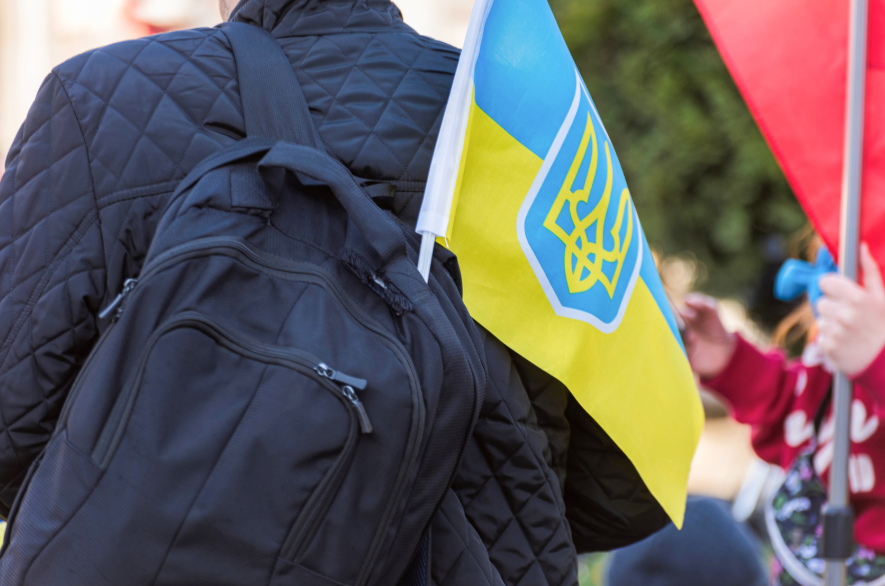Commemoration of a Year of Resilience
Kyiv, Ukraine—As the world observes the one-year anniversary of Russia’s invasion of Ukraine, leaders from various nations came together in a somber ceremony alongside Ukrainian President Volodymyr Zelenskyy. This event took place against the backdrop of a continuing conflict that has fundamentally transformed global geopolitics and displaced millions of people. Zelenskyy addressed the crowd, emphasizing the determination of the Ukrainian people and honoring the sacrifices made during the tumultuous year of warfare.
The Struggle for Freedom
The poignant anniversary serves not only as a memorial for lives lost but also as an annual reminder of the ongoing struggle for freedom and sovereignty. “Today, we remember the sacrifice of those who fought and those who continue to fight for our freedom,” Zelenskyy remarked at Kyiv’s Independence Square. He reinforced that this fight extends beyond Ukraine, symbolizing a broader struggle for democracy and sovereignty in a world increasingly characterized by geopolitical tensions.
Renewed Global Support for Ukraine
The anniversary reignited support for Ukraine from its Western allies, showcasing a united front against aggressions. U.S. President Joe Biden announced an additional $5 billion in military assistance aimed at strengthening Ukraine’s defense, which includes advanced air defense systems and other critical military hardware. “Ukraine’s fight is our fight,” Biden emphasized, reiterating the commitment of the United States to support Ukraine throughout this challenging period.
Targeting Russia’s Economic Backbone
In response to the anniversary, European leaders also reinforced their backing for Ukraine. Ursula von der Leyen, President of the European Commission, introduced the EU’s 11th sanctions package aimed at crippling Russia’s financial institutions and technological capacities. “We are tightening the noose on Russia’s war machine,” von der Leyen declared, signaling the determination of Western nations to curtail Russia’s military aggressiveness.
Moscow’s Resilience and Intransigence
Conversely, Russian President Vladimir Putin delivered a combative speech to a crowded audience in Red Square, reaffirming his justification for the invasion and claiming that the West has provoked conflict. Despite his declarations of strength, analysts are increasingly pointing to the toll the war has inflicted on Russia’s economic and military resources. Dr. Fiona Hill, a noted Russia expert, observed that “the costs are mounting, and cracks are beginning to show,” indicating vulnerabilities that may impact Russia’s long-term military objectives.
The Humanitarian Toll and Global Refugee Crisis
The human cost of the conflict has been staggering, with the United Nations estimating that over 200,000 soldiers and civilians have been killed or injured since the onset of hostilities. The war has generated Europe’s largest refugee crisis since World War II, displacing millions of Ukrainians. Filippo Grandi, UN High Commissioner for Refugees, stressed the urgent need for humanitarian assistance while emphasizing the importance of working toward a peaceful resolution to the conflict. “This war has devastated families and communities,” he stated, illuminating the widespread suffering caused by ongoing hostilities.
Stalemate and the Path Forward
Despite various diplomatic efforts, a peaceful resolution remains elusive. Ukraine maintains that peace talks cannot commence until Russia withdraws its forces and recognizes Ukraine’s territorial sovereignty, including important regions like Crimea and Donbas. However, Russia has shown a commitment to continue its military actions, leading to some of the most intense fighting seen in the conflict to date. Experts, including conflict analyst Dr. Maria Ivanova, describe the current situation as a stalemate, with neither side willing to yield and international mediation efforts struggling to gain traction.
Conclusion
As the conflict enters its second year, global divisions deepen as Western nations continue to enhance Ukraine’s defenses, while Russia forms closer ties with allies such as China and Iran. The anniversary is not just a mark of remembrance; it’s also a testament to the resilience of the ordinary Ukrainians who have faced immeasurable challenges over the past year. As stated by a teacher from Lviv, “We will rebuild—no matter how long it takes, we will rebuild and live free.” While the path to peace remains uncertain, the repercussions of Russia’s invasion are reshaping the global order, impacting nations far beyond Ukraine’s borders.
FAQs
What are the main causes of the conflict between Russia and Ukraine?
The conflict has its roots in various geopolitical tensions, including Ukraine’s aspirations to integrate with Western institutions, NATO’s eastward expansion, and Russia’s desire to maintain its influence over former Soviet territories.
How many people have been displaced due to the war in Ukraine?
As a result of the ongoing conflict, millions of Ukrainians have been forced to flee their homes, creating Europe’s largest refugee crisis since World War II.
What kind of support is Ukraine receiving from the West?
Western nations, particularly the United States and European Union, have committed military and humanitarian aid to Ukraine, along with imposing a series of sanctions aimed at crippling the Russian economy.
What is the current state of peace negotiations between Ukraine and Russia?
As of now, peace negotiations are at a standstill. Ukraine insists that talks can only begin after Russian withdrawal while Russia remains firm in its military campaigns, leading to ongoing conflict without resolution.
How has the invasion affected global relations?
The invasion has led to increased divisions within international relations, prompting Western nations to unite against Russian actions while pushing Russia to foster closer ties with countries like China and Iran as a counterbalance.

